|
 Ian Darwin,
Ian Darwin,
Secure Internet Firewalls With OpenBSD
(tutorial # F1pm)
Ian Darwin is the author of O'Reilly's "Checking C Programs
with Lint" and "Java Cookbook" and has a book in progress on Tomcat.
He has worked with computers since the time of UNIX' invention,
with C and UNIX since 1980 (currently favoring OpenBSD),
with Java since 1995, and with MacOS 7, 8, and X,
and other systems that were "below C level".
He is the author of the file(1) command used on all FreeNIXes,
teaches regularly for Learning Tree International,
and has presented tutorials at UniForum, the
O'Reilly OSCON, Geek Cruises' Java Jam and elsewhere.
 Hans van de Looy and Brenda Langedijk,
Hans van de Looy and Brenda Langedijk,
Using the FreeBSD ports
collection to perform network forensic analysis
(tutorial # F2am)
Hans Van de Looy has been hacking operating systems since 1979 and has
not stopped since. His private home-based network contains several
computers running all kind of neat stuff using mostly BSD and windows
flavored operating systems. Since his graduation he has worked for
several companies in various functions, ranging from senior software
developer at a nuclear science development site, development manager for
a telecommunications company, product marketing manager for a high-end
computer manufacturer and ethical hacker for one of the largest computer
centers in the Netherlands. He has presented lectures, workshops and
tutorials at universities and conferences like SANE, H2K, DefCON, ITSMF
and HAL2001. A couple of years ago he decided to to start his own
business and founded Madison Gurkha BV (http://www.madison-gurkha.com).
A privately held company providing techical security oriented
consultancy services like penetration testing and training. His
interests include but are not limited to security in its broadest
sense, reading, music and sailing. Hans can be also be contacted at:
hans@blackhats.org.
Brenda Langedijk is currently employed as a Security Consultant at Le
Reseau. Since her graduation she has worked for several companies and at
most of them in a security oriented role. After becoming a full time
member of the RISC team at one of the largest computer centers in the
Netherlands she really became interested in testing ICT security. Her
private home-based network contains several servers running both windows
and BSD operating systems. Having a broad knowledge on such diverse
subjects as PKI, penetration testing and windows security, she assists
organisations with the implementation of their ICT security and has both
developed and presented training courses on PKI and penetration testing
using Open Source software. Her interests include lockpicking, reading
and sailing. Brenda can also be contacted at: brenda@blackhats.org.
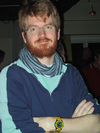 Poul-Henning Kamp,
Poul-Henning Kamp,
FreeBSD GEOM
(tutorial # F2pm)
Poul-Henning Kamp believes that UNIX is the best OS ever made so
far, he is convinced we can still make it better and he has been
trying to since the early eighties. Ever since Minix 1.0 came out,
Poul-Henning has been running UNIX on his laptop, and via 386BSD
he came to FreeBSD where he sat on the Core Team from 1994-2000.
Poul-Henning has been release engineer for a number of FreeBSD
releases, written, rewritten and cleaned up many pieces of FreeBSD
kernel, written a memory allocator, a password scrambler, the
beerware license and generally been having a good time. Poul-Henning
lives in Denmark with his wife, his son, his daughter about ten
FreeBSD computers and one of the worlds most precise NTP clocks.
He makes a living as an independent contractor doing all sorts of
magic with computers and network.
Paul Richards,
Device Drivers
(tutorial # F1am)
No biography submitted.
 Mike Karels,
Mike Karels,
keynote speaker
Michael J. Karels is the Principal Technologist in the BSD/OS group
at Wind River Systems. Previously he was responsible for BSD/OS
as System Architect and VP Engineering at BSDI. He spent eight
years as the Principal Programmer of the Computer Systems Research
Group at the University of California, Berkeley as the system
architect for 4.3BSD and 4.4BSD. He is a co-author of the book
``The Design and Implementation of the 4.4BSD Operating System.''
 Eilko Bos,
Eilko Bos,
Virtual Private Networks
using FreeBSD - a casestudy
Starting at the Gasunie I went to Philips C&P (Now Atos Origin). Spend
several years working for Origin and went back to Groningen (the north of the
Netherlands). Since 2 years I am working for Le Reseau, an information
security company. Le Reseau is an independant company, which does pentesting,
gives security-related workshops, advises companies about to-be-implemented
environments and so on. Most of my time I do pentesting and workshops.
 Philipp Bühler and Henning Brauer,
Philipp Bühler and Henning Brauer,
Running and tuning of
OpenBSD network servers in a production environment
Philipp Bühler has over eight years UNIX experience (Solaris, Linux, FreeBSD,
HP/UX, OpenBSD) and is co-founder of sysfive.com GmbH. Main working area
is network services and security. If company leaves him enough time,
he is working on the OpenBSD packetfilter.
http://sysfive.com/
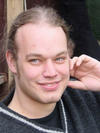 Henning Brauer is founder of BS Web Services, an Internet Service Provider,
and is responsible for the server operations, planning, customer
interfaces and backend development. He's an OpenBSD developer, mainly
working on the packet filter and maintaining the in-tree apache. He recently
developed privilege seperation for Apache. He started working with and on
UNIX back in 1995 and worked with Linux, Solaris, FreeBSD, and of course
OpenBSD.
Henning Brauer is founder of BS Web Services, an Internet Service Provider,
and is responsible for the server operations, planning, customer
interfaces and backend development. He's an OpenBSD developer, mainly
working on the packet filter and maintaining the in-tree apache. He recently
developed privilege seperation for Apache. He started working with and on
UNIX back in 1995 and worked with Linux, Solaris, FreeBSD, and of course
OpenBSD.
http://bsws.de
 Pim Buurman,
Pim Buurman,
Xperteyes - keeping
your system under control
Pim Buurman started out as a mathematician, but he was always more interested in
writing software in complex environments. The simple UNIX environment gives
enough challenges to keep him happy. Since May 2001 he works for X|support. He
partially developed the public domain tool TimeWalker
(http://www.NLnet.nl/projects/timewalker), a tool to visualize interactively
huge amounts of eventdata. Xperteyes is his new tool.New functions can be defined instantly by the user.
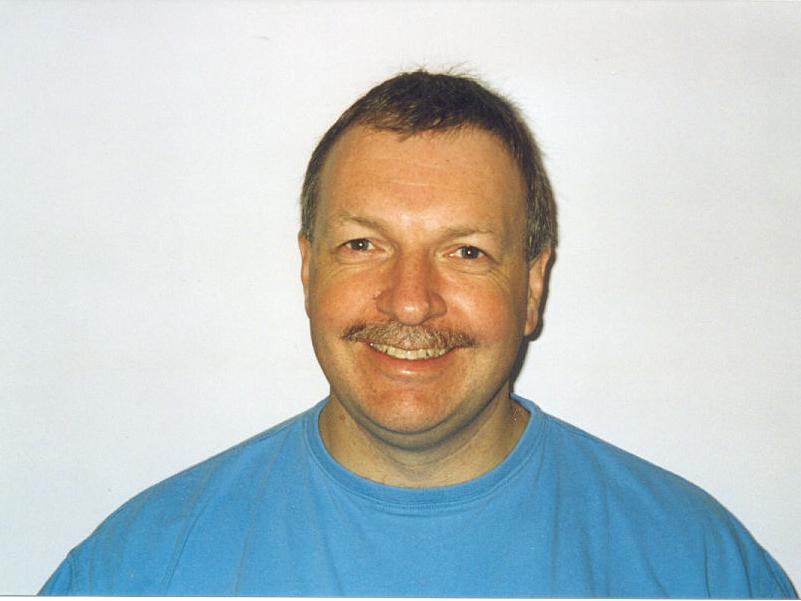 Alistair Crooks,
Alistair Crooks,
Package views - a more
flexible infrastructure for third-party software
Mr. Crooks is Senior Development Manager for Wasabi Systems, who
specialise in providing NetBSD-based solutions for the embedded
marketplace. He also heads up the NetBSD packages team, and is an
ex-member of the NetBSD core-team. Alistair has over 20 years
experience in the IT industry, and has worked in financial
institutions, for major computer manufacturers, software houses,
and for other users, as well as running his own consulting business
for 8 years. He lives in the UK with his wife and children, and
has worked in the UK, USA, Germany and the Netherlands.
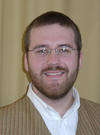 Hubert Feyrer,
Hubert Feyrer,
Clustering NetBSD
After studying computer science with an emphasis on operating systems,
Hubert Feyrer started working as system and network engineer at the CS
department of the University of Applied Science (FH) Regensburg. His
daytime work includes administrating the CS department's Unix machines and
IPv6 infrastructure. In his spare time, he contributes to the NetBSD
project in 1993. Work areas there include the NetBSD Packages System and
3rd Party Software and documentation as well as advocacy and PR.
Other interresting projects include evaluation of NetBSD on Toshiba
laptops, lectures on Unix system administration at the FH Regensburg as
well as a NetBSD-based cluster of 45 machines for rendering videos during
the Regensburg city marathon.
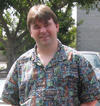 Alan Horn,
Alan Horn,
Monitoring the world
with NetBSD
Alan currently works at Inktomi in their US headquarters as a Systems
Architect. Prior to working in two different countries for Inktomi,
he was a security consultant with Internet Security Systems, and their
commercial deployment manager for EMEA.
In a slightly earlier life he was a senior administrator at Dreamworks
Feature Animation, where he was responsible for designing and building the
production network, and maintaining systems security as well as daily
senior admin type operations.
Before that he mostly played with backup media :)
Alan is an experienced technologist with a very broad range
of knowledge and skills. His specialties include systems architecture
and network design, security management and response and developing
bespoke, robust code to support these endeavours.
 Poul-Henning Kamp,
Poul-Henning Kamp,
Timecounters: Efficient
and precise timekeeping in SMP kernels
Poul-Henning Kamp belives that UNIX is the best OS ever made so
far, he is convinced we can still make it better and he has been
trying to since the early eighties. Ever since Minix 1.0 came out,
Poul-Henning has been running UNIX on his laptop, and via 386BSD
he came to FreeBSD where he sat on the Core Team from 1994-2000.
Poul-Henning has been release engineer for a number of FreeBSD
releases, written, rewritten and cleaned up many pieces of FreeBSD
kernel, written a memory allocator, a password scrambler, the
beerware license and generally been having a good time. Poul-Henning
lives in Denmark with his wife, his son, his daughter about ten
FreeBSD computers and one of the worlds most precise NTP clocks.
He makes a living as an independent contractor doing all sorts of
magic with computers and network.
 Brad Knowles,
Brad Knowles,
MTA Performance on
*BSD: Sendmail, Postfix and Exim on (Free|Net)BSD
and MacOS X
Brad is an Internet mail & DNS specialist with over seventeen years of
experience in a variety of fields related to Unix, the Internet, and
Internet e-mail.
He has given invited talks at SANE'98 (_Sendmail Performance Tuning
for Large Systems_) and LISA 2000 (_Design and Implementation of Highly
Scalable E-mail Systems_), and was on the program committees for SANE 2000
and SANE 2002. He was on the publication review team for several books,
including 2nd ed. of both _sendmail_ by Bryan Costales and _DNS and BIND_
by Paul Albitz and Cricket Liu.
He is now a Sr. Consultant for Snow BV, Unix & Java Specialists in
the Netherlands.
 Albert Mietus,
Albert Mietus,
Securing syslog on
FreeBSD
Albert has been using FreeBSD as long as the product exists; he started with 386
BSD, indeed on a 386-CPU. That system is still in use, now as a firewall.
Albert is a hardcore Unix-user, running FreeBSD whenever possible. "Running Unix
isn't a goal by itself", he always says, "but using FreeBSD can often simplifyi
ng the solution". Especially in environments where stability, security and quali
ty are important, the open and standardised implementations of FreeBSD come in h
andy.
Albert is currently working for a customer, where the FreeBSD implementation of
syslog will be used for securing and auditing both infrastructure and applicatio
ns. In Albert's current architecture, up to 100K applications and systems, from
router to mainframe can be connected and use syslog for logging. Everything, fr
om simple application-debugging to tracking of complex financial systems can be
handled with this logging-infrastructure. By using the security enhancement, sys
log can be used even in hostile environments. Albert is key-designer of this pro
ject. He has both started the architecture, argued for syslog, and will assist w
ith the implementations of the security-enhancements.
 Marco Molteni,
Marco Molteni,
Using SCTP with Partial
Reliability for MPEG-4 Multimedia Streaming
I discovered Unix at University, and I have fallen in love with BSD
since then. After graduating in Computer Science, I left Italy for
California, where I worked for SRI International. I am now based in
France and work for Cisco Systems. In my various experiences I have
enjoyed hacking on FreeBSD and more esotic platforms.
Among my interests are network and system programming, network protocol
design, computer security and system administration. I like spending my
spare time creating welded sculptures designed by my wife Francesca.
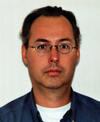 Bram Moolenaar,
Bram Moolenaar,
All For One Port,
One Port For All
Bram Moolenaar has worked on open-source software for more than ten years. He
is mostly known as the creator of the text editor Vim. Currently he is
working on a project called A-A-P, which is about creating, distributing and
installing (open source) software. His background is in computer hardware,
but these days mostly works on software. He still knows on which end to hold
a soldering iron though. In the past he did inventions for digital copying
machines, until open-source software became his full-time job. He likes
travelling, and often visits a project in the south of Uganda. Bram founded
the ICCF Holland foundation to help needy children there. His home site is
www.moolenaar.net.
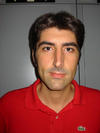 Riccardo Scandariato,
Riccardo Scandariato,
Advanced VPN
support on FreeBSD systems
Riccardo Scandariato received his master degree in telecommunication
engineering at Politecnico di Torino on December 2000. Currently he is a PhD
student at the Control and Information Engineering Department of Politecnico di
Torino.
Dag-Erling Smørgrav,
Authentication in
FreeBSD 5.0
Over the past year, support for advanced user authentication in FreeBSD has
grown considerably through the systematic integration of PAM in almost all
authentication-related utilities. Administrators can now choose from a
wide variety of both software- and hardware- based authentication methods
for both local and remote access. In the course of this presentation, we
will discuss and demonstrate a selection of these methods and the ways in
which they can be put to fruitful use.
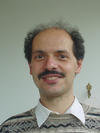 Ignatios Souvatzis,
Ignatios Souvatzis,
A shared
write-protected NFS root file system for a cluster
of diskless machines
Ignatios Souvatzis is "System Programmer" (in reality, a nonlinear
combination of system administrator, tape operator, kernel hacker, and
user advisor) at Chair V of the Computer Science Department at the
University of Bonn.
He is also a NetBSD key developer. His main tasks have been some
device drivers, a new ARP system, and maintaining the Amiga port.
Sometimes, those assignments overlap.
He studied Physics and Astronomy in Bonn. He has used nearly
everything running VMS from the 11/780 to MicroVAX, and everything
running Ultrix from the DECstation 2100 to the 5000/260 and even a
CDC Cyber 172 and a Convex to do astronomical data reduction.
Earlier at University, he (ab)used lots of different systems, from IBM
360 to 4331 to PC to solve the eight queens problem, has written test
programs for 8085 and UNIBUS control boxes for the new accelerator at
the physics department. In his second University year, he was
introduced to Unix (on a z8000 box) at a small software company.
He seldom admits that he was teaching an introduction to BASIC at an
adult education center in late 1981/early 1982 (but it paid driving
home for the weekends).
 David Sugar,
David Sugar,
Using BSD for current
and next generation voice telephonyservices
I am one of the founders of and Chief Technology Officer for Open Source
Telecom Corporation (http://www.ostel.com). I am also the primary author
of and active maintainer for a number of packages that are part of the GNU
project, including GNU Common C++, GNU ccScript, GNU ccRTP, and GNU
ccAudio, as well as the GNU telephony application server, GNU Bayonne. Furtherm
ore, I maintain the FreeBSD ports for these packages. I
also serve as the voluntary chairman of the FSF's DotGNU steering
committee (http://www.dotgnu.org), and have served as the communities
elected representative to the International Softswitch Consortium.
 Valeriy Ushakov,
Valeriy Ushakov,
Porting NetBSD to
JavaStation-NC
Valeriy started with 2.9BSD on a PDP-11. His involvement with NetBSD
started with the sparc port and has been expanding along with his
small but growing collection of hardware. He became a NetBSD
developer in 2001. His day job involves working with Java AWT, so
hacking device drivers is a refreshing change.
Gerald Wilson,
MacOS X on a budget
Gerald Wilson has worked for more than twenty years in technical computing, as p
rogrammer, designer, and technical manager. In that time, Gerald has worked on c
ontrol systems for laboratories and factories, avionics systems, military commun
ications systems, and most recently naval command systems. Over the years he has
also spent many happy hours as network and systems manager for technical develo
pment teams. Gerald has an unhealthy depth of knowledge about Macintosh computer
s, a working knowledge of UNIX, and can install Windows at a pinch. Gerald think
s that Dr Edgar David Villanueva Nunez should be the next Secretary General of t
he United Nations.
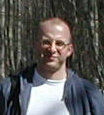 Marko Zec,
Marko Zec,
FreeBSD network stack virtualization
Marko Zec has five years of industry experience with networking
technologies. While working for IBM, he was responsible for design and
implementation for a couple of the largest WAN/ATM enterprise networks in
Croatia. Since 1994. he has been also more or less seriously involved in
system administration of numerous UNIX installations. Currently, while
resuming his graduate studies at the Faculty of Electrical Engineering and
Computing in Zagreb, he enjoys the opportunity to spend his time in
exploring the BSD kernel internals.
|


